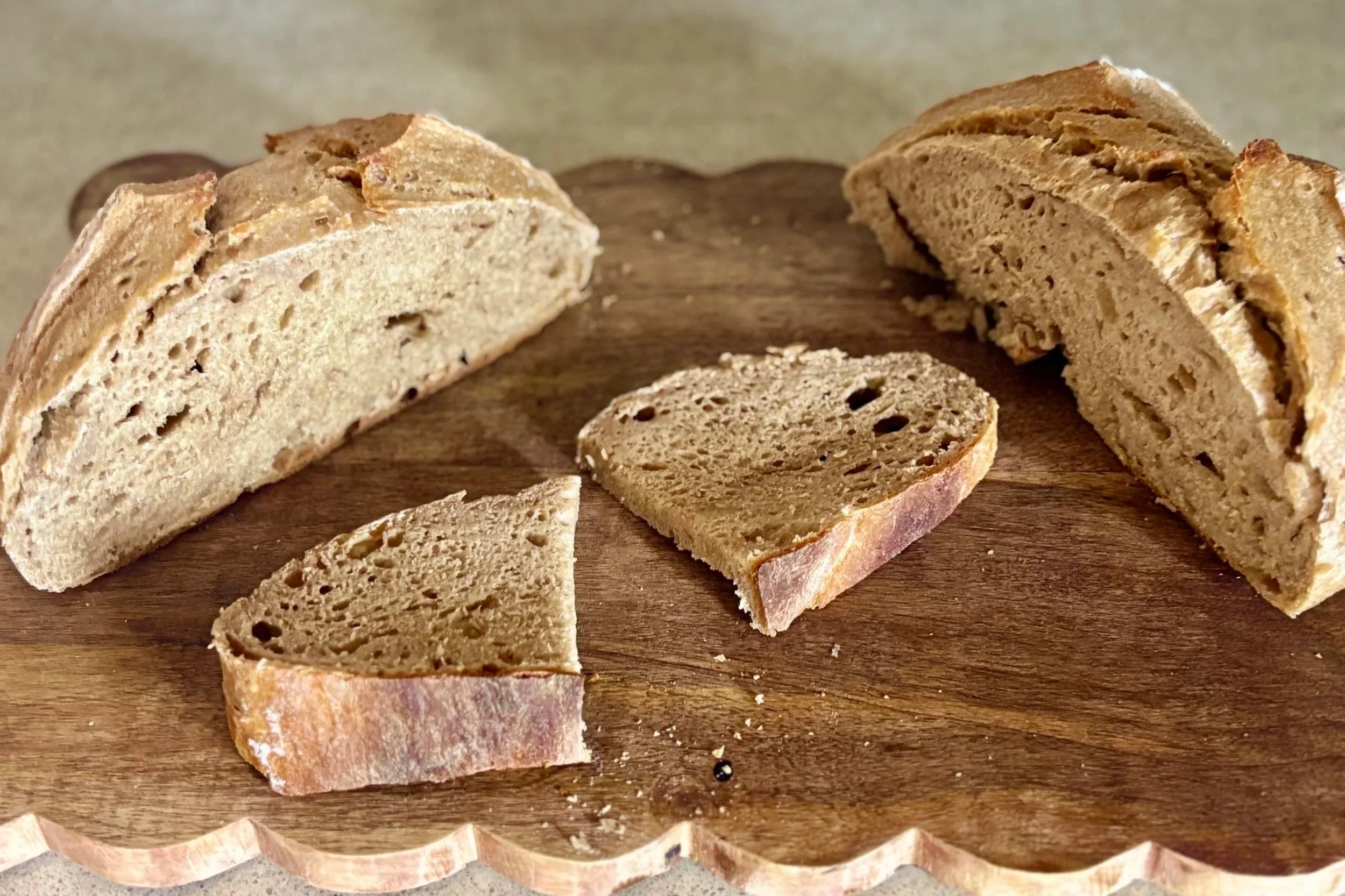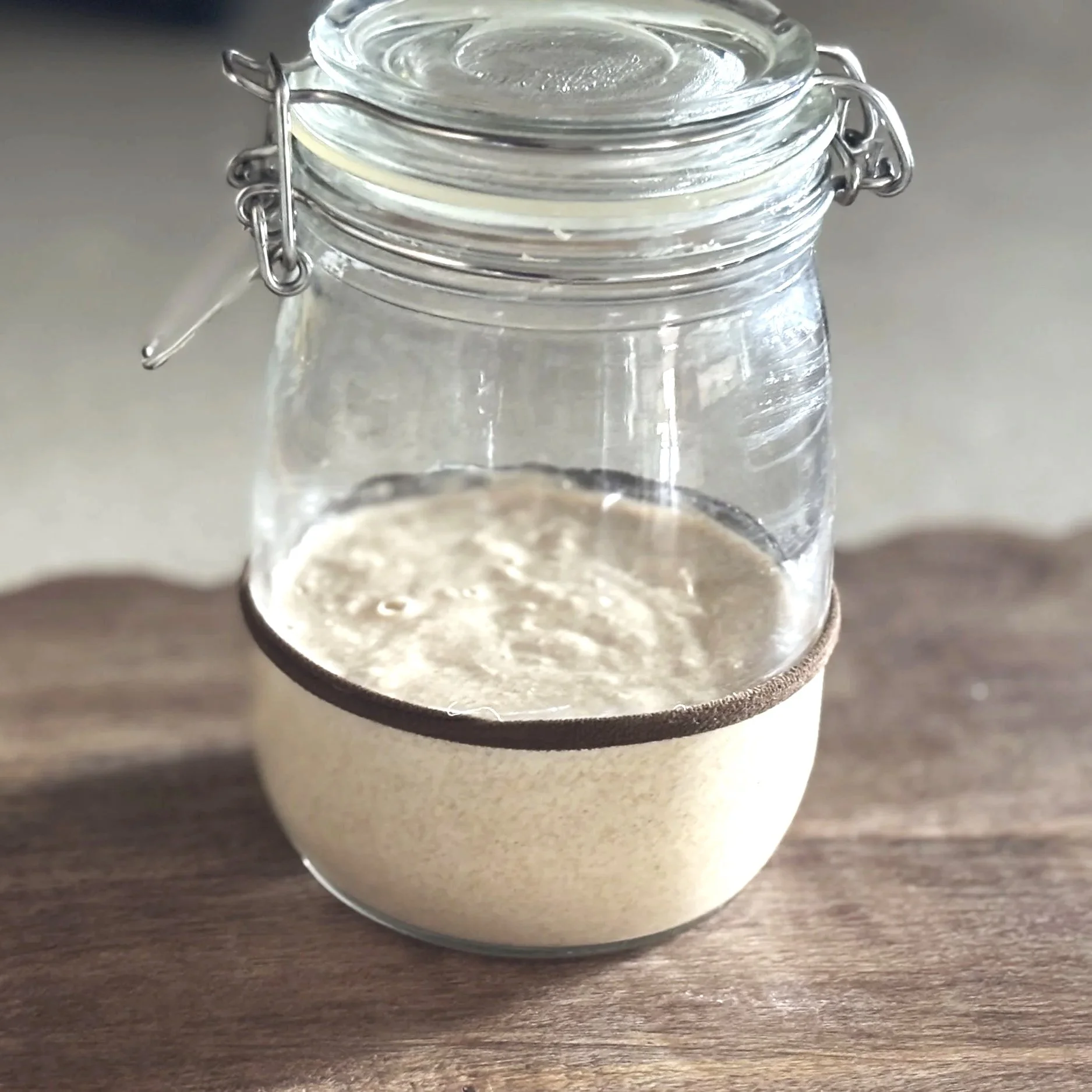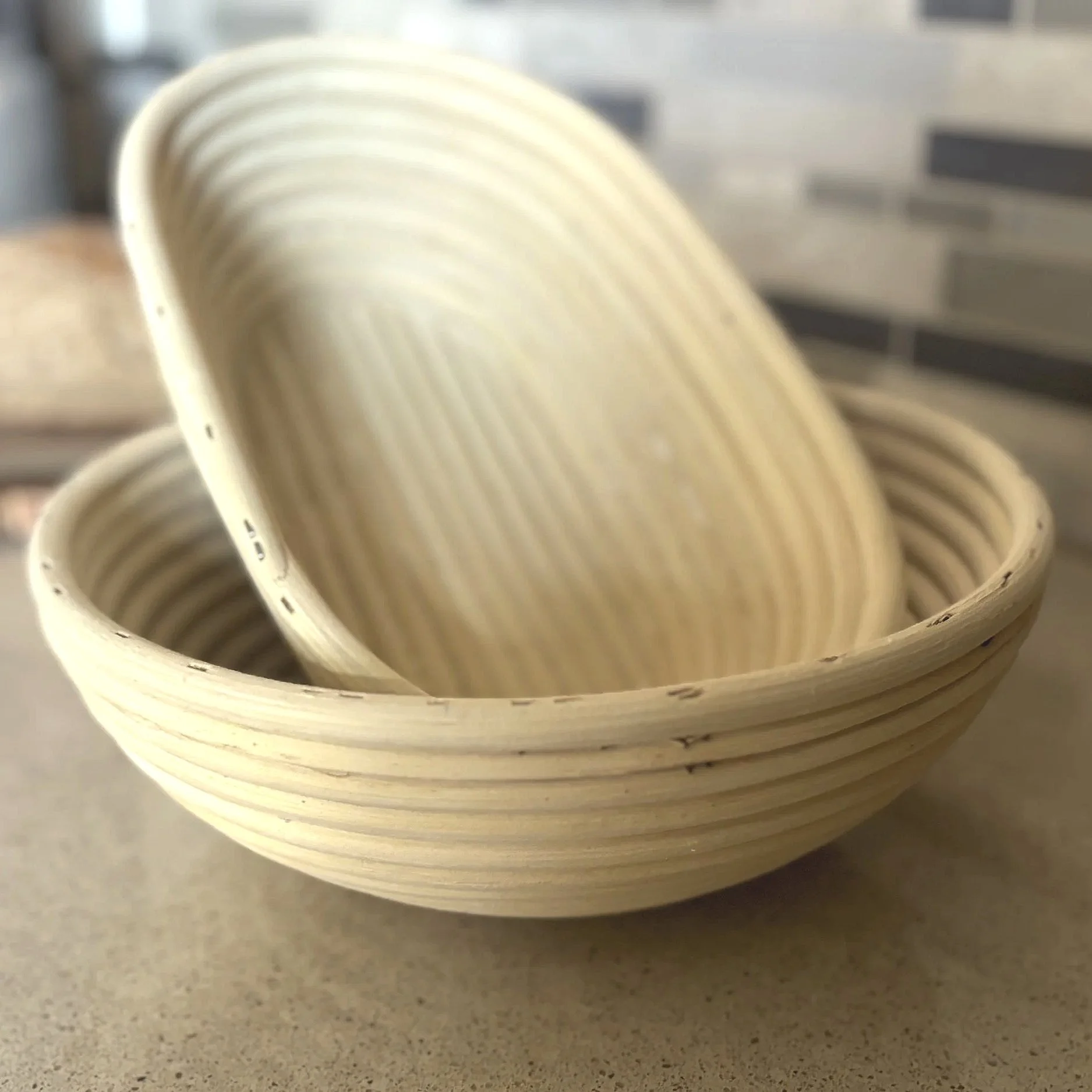Essential Tools for Sourdough Beginners
Getting started with sourdough can feel overwhelming and there are a lot of tools and products out there that can help. But, do you really need all of that to get started? While you can make sourdough from only flour, water, and salt, you do need the right tools to get started. Our family was in money-saver mode when I started making sourdough, so I got started with only tools I already had in my kitchen.
Disclosure: This post contains affiliate links. As an Amazon Associate, I earn from qualifying purchases, at no extra cost to you.
Here are the essentials I recommend and some nice-to-have’s for any new sourdough baker.
Things you may need to purchase:
1 - A Container for Your Starter
A clear glass container is perfect for making your sourdough starter because it lets you easily see the activity and rise inside. Choose something with a wide mouth so you can easily feed and stir your starter. I usually use 1 cup of starter (225-240 g) in my bread recipe, so a 32 oz container is a nice size that leaves enough room for the starter to grow without having to worry about it overflowing the container.
These come in a pack of 4, so you can use the other three to store pantry staples.
2 - Shaping Banneton (Proofing Basket)
A banneton gives your dough structure as it rises, helping it hold its shape and creating those beautiful spiral patterns on the finished loaf. Line it with a linen cloth and dust with flour to prevent sticking.
This is a great set that includes two bannetons and liners.
3 - Dutch Oven
This is definitely an essential tool for sourdough baking! The heavy lid traps steam, giving your bread that classic crackly crust. A 5–7 quart Dutch oven works well for most home loaves.
Lodge is a great brand that holds up well over the years. It is a bit more expensive, but this is likely a one time investment that will last for a very long time.
4 - Bread Bag
Once you’ve baked your loaf, you’ll want to store it properly. A reusable bread bag keeps your bread from getting moldy and stale.
These are cute and easy to clean and come in a set of 2.
Things you probably already have:
Measuring Cups
Using measuring cups, rather than a kitchen scale, is an easy way to get started with soudough. I cook and bake so much, that I have three sets of measuring cups. You’ll use these for feeding your starter and for measuring flour for your dough.
A Large Glass or Ceramic Bowl
You’ll need a big mixing bowl for building your dough and letting it sit in between steps. Glass or ceramic are preferred materials because they retain the heat of fermentation well. They are also both non-toxic and easy to clean.
Spatula or Heavy Spoon
If you don’t have a dough hook or do not want to purchase one, a heavy spatula and extra mixing will also work. The dough ends up being quite thick and strong; therefore, a sturdy tool will help.
Parchment Paper
Don’t underestimate parchment paper! It makes transferring your dough into a hot Dutch oven safe and simple. It also helps prevent sticking on your banneton or baking surface.
Rubber Band
A simple rubber band around the outside of your starter container is a good way to measure how much your starter has risen. Typically you’ll want to see it double in size before you bake with it. By placing a rubber band around the container at the level of the starter immediately after feeding, you’ll easily be able to see when it has doubled.
Take your sourdough to the next level with these:
Kitchen Scale
If you want to get more technical with your sourdough making you may want a kitchen scale so you can make your measurements more precise.
Dough Hook
A dough hook will help you quickly and efficiently mix the flour and water together for your dough. When purchasing a dough hook, start with a 2-eye (double loop) - it’s the most versatile. This product is all stainless steel which makes cleaning easier.
Silicone Sling
A silicone sling can be used instead of parchment paper to transfer your dough to the Dutch oven. It is reusable and sturdier than parchment paper.
Cost to get started:
Assuming you already have a mixing bowl, measuring cups, a sturdy spatula, and parchment paper, below is a summary of the cost to get started:
| Item | Cost |
|---|---|
| Wide-mouth jars (set) | $21.99 |
| Bannetons + liners (set) | $19.99 |
| Dutch oven | $99.90 |
| Bread bag / storage cloth | $25.99 |
| Total | $167.87 |
While the upfront cost of these tools is around $175, most are one-time purchases that will last for years and some items, like the Dutch oven can be used for other types of cooking. A sturdy Dutch oven, proofing baskets, and jars are durable investments and once you have them, baking sourdough at home is incredibly cost-effective. Considering the price of bread at the store, your tools will quickly pay for themselves while giving you fresh, homemade loaves anytime you like.
✨ Final Thoughts
You don’t need a fancy kitchen to start baking sourdough. With just a few simple tools, you can create bakery-style bread at home. Start with the basics: a jar for your starter, a mixing bowl, and a Dutch oven — and add the rest as you go.
The joy of sourdough is that it grows with you. As your confidence builds, these tools will help you take each loaf to the next level.






